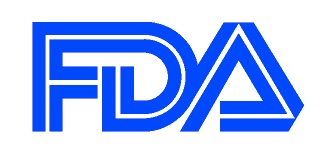FDA Delays Decision on Duchenne MD Drug Eteplirsen, Again Failing to Meet Target Date

 Sarepta Therapeutics of Cambridge, Massachusetts, reports it has been notified by the Food and Drug Administration (FDA) that the agency was unable to complete its review of Sarepta’s New Drug Application (NDA) for the Duchenne muscular dystrophy (DMD) drug candidate eteplirsen by the Prescription Drug User Fee Act (PDUFA) goal date of May 26.
Sarepta Therapeutics of Cambridge, Massachusetts, reports it has been notified by the Food and Drug Administration (FDA) that the agency was unable to complete its review of Sarepta’s New Drug Application (NDA) for the Duchenne muscular dystrophy (DMD) drug candidate eteplirsen by the Prescription Drug User Fee Act (PDUFA) goal date of May 26.
The FDA said it will continue the review process and its internal discussions related to eteplirsen past the PDUFA target date and will require additional  time for its regulatory work. Eteplirsen uses Sarepta’s proprietary phosphorodiamidate morpholino oligomer (PMO) chemistry and technology to skip exon 51 of the dystrophin gene.
time for its regulatory work. Eteplirsen uses Sarepta’s proprietary phosphorodiamidate morpholino oligomer (PMO) chemistry and technology to skip exon 51 of the dystrophin gene.
The FDA says it strives to complete its work in as timely a manner as possible. In February, the FDA notified Sarepta that it would need more time to complete its review of the NDA for eteplirsen, and extended the PDUFA date to May 26. It says it now needs additional time.
 “While our primary goal is to bring treatment to patients with Duchenne as quickly as possible, we appreciate the efforts of the FDA to conduct a complete review of all of the data supporting our NDA and we remain committed to working closely with them throughout the remainder of the regulatory process,” said Edward Kaye, Sarepta’s interim CEO and chief medical officer, in a release.
“While our primary goal is to bring treatment to patients with Duchenne as quickly as possible, we appreciate the efforts of the FDA to conduct a complete review of all of the data supporting our NDA and we remain committed to working closely with them throughout the remainder of the regulatory process,” said Edward Kaye, Sarepta’s interim CEO and chief medical officer, in a release.
DMD is associated with specific errors in the gene that codes for dystrophin, a protein that plays a key structural role in muscle fiber function. The FDA previously granted Priority Review status to eteplirsen, Sarepta’s lead DMD product candidate , which is designated for drugs that provide a treatment where no adequate therapy exists, and also granted eteplirsen Rare Pediatric Disease Designation, Orphan Drug Designation, and Fast Track status. Eteplirsen is designed for treatment of some mutations that cause the devastating genetic degenerative muscle disease that afflicts roughly one in every 3,600 boys.
And estimated 13 percent of people with the DMD have mutations that may be addressed by eteplirsen/exon 51 skipping. Candidates for exon 53 skipping (SRP-4053) and for exon 45 skipping (SRP-4045) are also in clinical development, with other drug candidates designed to skip exons 44, 52, 50, 43, 55, 8 and 35 in preclinical development.
Loss of muscle mass results in most DMD boys being confined to wheelchairs by their early teenage years. They progressively lose the ability to independently perform activities of daily living such as using the bathroom, bathing, and feeding themselves, and require breathing and feeding tubes in later stages. Duchenne eventually affects all voluntary muscles, involving the heart and breathing muscles in later stages. It is currently an incurable terminal disease.
Eteplirsen is designed to address DMD’s underlying cause by restoring the dystrophin messenger RNA (mRNA) reading frame, thus enabling the production of a shorter, functional form of the dystrophin protein. Sarepta cites data from clinical studies of eteplirsen in DMD that it says shows patients have demonstrated a consistent safety and tolerability profile and have also shown measurable dystrophin protein expression. Promoting the synthesis of a shorter dystrophin protein is intended to slow the decline of ambulation and mobility seen in DMD patients.
Although the molecular defect responsible for DMD was identified 20 years ago, there are currently no approved therapies for DMD in the U.S., with treatment generally aimed at controlling the onset of symptoms and maximizing quality of life. The outpatient cost of care is very high for boys who are non-ambulatory.
The FDA has emphasized that DMD is a rare and serious disease without approved treatments, and says it has long stressed that it is appropriate to exercise the broadest flexibility in applying the statutory standards to drugs for such diseases while preserving appropriate guarantees for effectiveness and safety. The agency notes that the accelerated approval Sarepta is seeking for eteplirsen is a particular type that the FDA may grant for a product designed to treat a serious or life-threatening disease if it determines the product has an effect on an endpoint that is reasonably likely to predict clinical benefit, or on a clinical endpoint that can be measured and that is reasonably likely to predict an effect on irreversible morbidity or mortality or other clinical benefit, taking into account the severity, rarity, or prevalence of the condition and the availability or lack of alternative treatments.
However, the FDA previously noted that the clinical course of eteplirsen patients over more than three years of treatment has so far been generally similar to the expected natural history of patients provided with intensive supportive care, and that trial results — potentially representing a more direct measure of strength — suggest that differences in DMD progression between eteplirsen patients and the applicant’s natural history controls were too small and variable. The study included 12 DMD boys.
Regarding future efficacy studies, any beneficial effects of eteplirsen are unlikely to be large enough to be detectable outside of a placebo-controlled trial, although dose-limiting toxicity was not observed, so higher doses of eteplirsen, with potentially greater likelihood of efficacy, could be studied in the future, the FDA has said.






